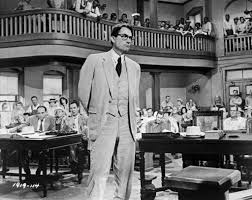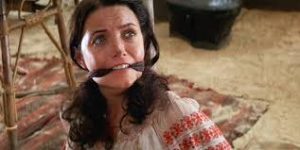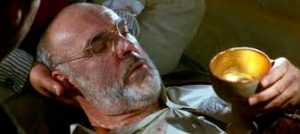
I evaluated a script and provided coverage last week that made for an interesting read, as well as a couple of interesting dilemmas. The screenplay was entertaining enough. It was an action script that was well-paced, but not particularly well-structured. It had a very short first act and there was no discernible break between the second act and the third act. The story did change direction somewhat at the point where the break should have been, but there was no emotional connection in regards to it with the main character, and that left the moment wanting. I have had other such experiences while reading scripts, and those instances confirm to me how interconnected the structure of a story is with the development of the main character.
If the main character doesn’t have a clear goal that the audience can be emotionally engaged in, then the story will not hit the correct emotional beats and the entire structure of the story will suffer.
That might sound like a simplistic idea, but many writers struggle with the Act II to Act III transition and the reason for that almost always is because they didn’t do enough to develop the main character and make it clear what her goal was and what the stakes were. That’s a huge problem because the transition from Act II to Act III is all about the stakes. The best Act II’s end with the hero losing everything. Well, if you don’t know what’s important to the hero and why it’s important, how can she lose everything when we don’t know what she has to lose?
Getting back to the script that I read last week, that was the problem I saw. As I said, it was an action script, and there was a lot of action. It was entertaining, and if it ever gets made, it has the potential to draw a major star to the lead role and that could be enough to make it a hit. But I guarantee that it will have a crappy score on Rotten Tomatoes, and people might not even know why they’re down on it. I must admit, when I first read it, I couldn’t figure out why I was down on it either. Entertaining story? Check. Likable main character? Check. But why did I like him? He had some snarky one-liners and he killed bad guys. And yes, the story was entertaining, but the structure was all off and that killed the drama which killed my ability to become emotionally engaged. It was all superficial.
After going through the script a second time it dawned on me that the hero’s outer goal and inner need were both vague at best and nonexistent at worst. To a degree, I believe that the writer outsmarted himself by adding in a lot of misdirection and some “red herrings” in order to keep the audience off the trail of the twist that he was trying to set up for the end. Unfortunately all of that extra material muddied the water to the point where it was unclear what the hero needed to accomplish.

Now, I get it. This was an action script, and you’re thinking that an action hero doesn’t necessarily need an inner need that’s in conflict with the outer goal. I would counter that an action hero needs that more than anyone. Think of Indiana Jones. At least in the first three films of that series, he had an inner need that was in conflict with his outer goal. In the first film, he needed to reconcile with Marion so that he could make peace with himself over how he left her in the past. That comes into conflict with his outer goal of keeping the Ark of the Covenant from the Nazis when he finds Marion in the Nazi camp and is about to rescue her. He realizes that he can’t cut her loose because if she’s discovered to be missing, the Nazis would be alerted to their presence in the camp, and make it more difficult to acquire the Ark. In the third movie there is a similar situation, but he has to reconcile and salvage his relationship with his father.

Spielberg didn’t spend a ton of time on these motifs, but they were clearly there, and they added emotional impact to the story so that we as the audience were affected when we thought Marion was dead or when we thought that Henry was in danger of dying. The point is that, not only with hero’s in an action movie, but with any hero in any kind of story, the dramatic structure is directly tied to the wants and needs of the hero.
Act II begins with the hero setting off the get what he wants, and Act II ends with the hero appearing not to get it.
That simple formula is the basis for the drama in your story and without drama, there is no emotion. Again, it might sound simple, but just giving a character something to want isn’t enough. We need to know what the hero will lose if she doesn’t get what she wants and why that’s important enough for us to care about it. Will the Nazis get the Ark and use it to conquer the world? Will a group of children be sentenced to a lifetime of slavery so that a religious zealot will acquire what he needs to shroud the world in darkness? Or is it something simpler? Will the boy not get the girl, causing both of them to live a life where they’re constantly asking themselves, “what if”?

Whatever the answers to those questions are, the audience needs to care about it more than anything or your script, no matter how entertaining it might be, will be shallow, superficial and have the feeling like something is missing, like having an itch that can’t be scratched.
At Monument Scripts, we’re experts in story structure and character development. If you have a script that you’re working on and you are having issues developing your hero or finding the structure in your story, we can help. Click here for a list of our coverage services, and let us know which one best suits your needs and the needs of your script.